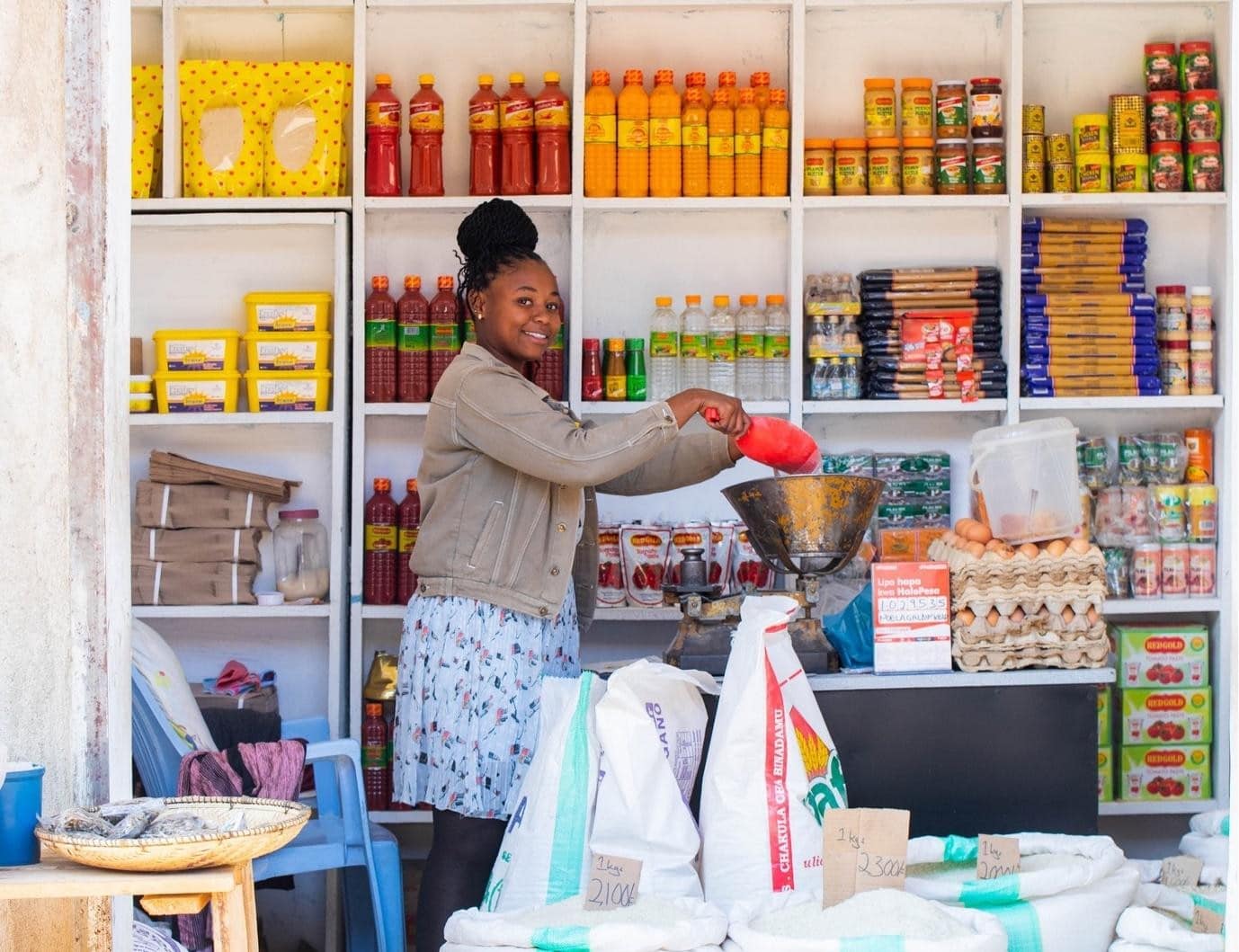Boosting the Growth of Women and Youth-owned MSMEs in Tanzania
By Dr. Peter Kingu, Head of Policy, SME Development, and Inclusive Finance-FSDT
The Micro, Small, and Medium Enterprises (MSMEs) sector is among the leading sectors in Tanzania, contributing an estimated one-third of the country’s GDP (EEAS 2024). MSMEs are also a primary source of employment and economic opportunities for underserved populations, particularly women and youth. It is estimated that 54% of MSMEs in Tanzania are owned by women (IFC 2022) and 47% by youth (URT 2021).
Despite their significant contribution, MSMEs are hampered by a massive finance gap, particularly for the 54% of women-owned MSMEs, which face a credit deficit of TZS 3.9 trillion (USD 1.7 billion) (IFC 2022). This gap represents a brake on economic dynamism. Limited access to relevant and affordable capital for productive investments hinders their growth potential from micro to small, small to medium, and medium to large enterprises, leaving 97.1% of MSMEs stranded at the micro level, and operating informally (ESRF 2016).
In recent years, Tanzania’s financial sector has expanded in scope and complexity, especially through innovations in digital financial services (FinScope Tanzania 2023). However, significant gaps persist in financial inclusion and impact. Although women and youth are essential to the economy as producers, consumers, workers, and entrepreneurs, they often face low financial literacy, the inability to afford available financial solutions, and limited tailormade financial products and productive investment options, which hinder their participation in the formal financial system.
To address these barriers and build an inclusive financial ecosystem that supports the growth of women- and youth-owned MSMEs in Tanzania, coordinated thinking and efforts are essential. This requires structured and inclusive engagements among financial service providers, policymakers, regulators, and practitioners for the development of suitable and affordable financial solutions and an enabling environment for such solutions to positively impact the financial health of women, youth and MSMEs.
For these reasons, the Financial Sector Deepening Tanzania (FSDT) has initiated the Inclusive Finance for the Growth of Women and Youth MSMEs Programme, funded by the EU Delegation to Tanzania. With a focus on fostering innovation and building robust financial infrastructure, the programme seeks to promote inclusive and sustainable economic growth of women and youth MSMEs, particularly within green and circular economies, by offering tailored financial solutions, enterprise development, as well as evidence-based policy engagement. Key interventions include an MSME Impact Grant Fund, Venture Capital and Private Equity Support, and Technical Assistance for financial service providers. Through such interventions, the programme is expected to enhance:
- Access to finance through blended financing solutions to support high-potential MSMEs and start-ups with co-investment capital to fuel formalisation, equipment purchase, and technology upgrades.
- Access to equity finance through private and venture capital that unlocks early-stage and growth capital for enterprises that are too risky for banks but have high potential.
- Availability of Data Infrastructure by strengthening systems for real-time data collection, credit history, and market intelligence to reduce asymmetries and support better risk assessments, especially for new circular business models.
- Provision of technical assistance to financial service providers to build their capacity in inclusive product design, gender data analysis, and delivery models.
- Strategic convening of regulators, policymakers, financial service providers, and other market actors to review legal frameworks, bottlenecks, and progressively coordinate policy reforms.
- Availability of evidence for policy and regulatory reform through research, assessments, and evaluations to guide long-term legal and regulatory changes.
- MSMEs’ capability and knowledge to improve their operational efficiency and ability to absorb financial solutions.
- Incentives for MSMEs to expand into environmentally friendly activities such as waste management, agroforestry, renewable energy, biodiversity conservation, and other ecologically sound sectors.
FSDT will take on its market facilitation role in the implementation of the programme and will partner with key private sector actors, including banks, microfinance institutions, enterprise development organizations, technical assistance service providers, industry associations, as well as women and youth MSMEs. We will also partner with key public sector actors, including the Ministry of Finance, Bank of Tanzania, Capital Markets and Securities Authority, and other regulators.
To learn more about the Inclusive Finance for the Growth of Women and Youth MSMEs Programme, and the specific interventions that are in the pipeline, kindly visit our website, via: Inclusive Finance for the Growth of Women and Youth MSMEs.

